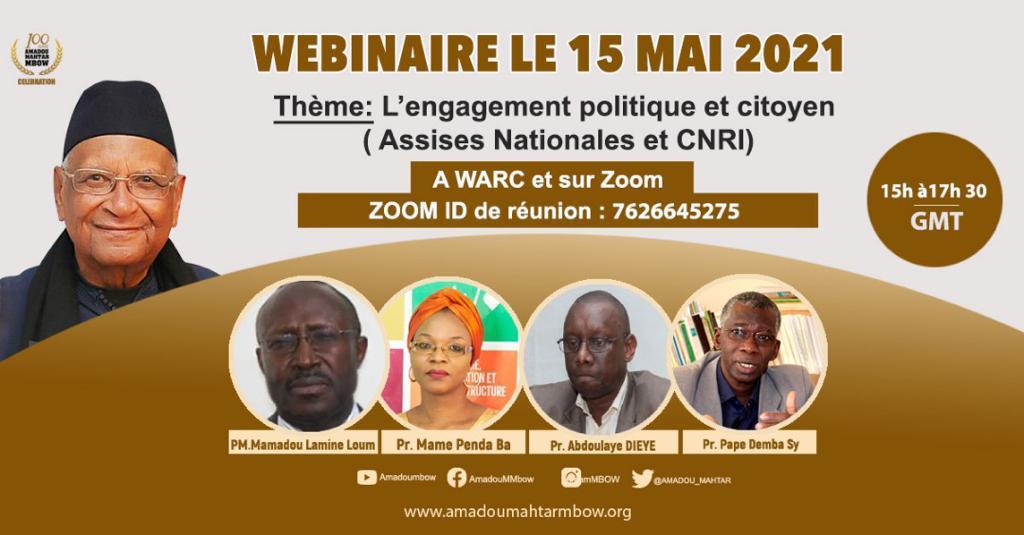HIGHLIGHT
Amadou Mahtar Mbow’s Centennial: Mbow’s Political and Civic Engagement as testified by the National Assises (Assises Nationales) and the National Commission for Institutional Revision (CNRI)
Saturday May 15th, from 3pm to 6pm, the West African Research Center (WARC) hosted the second roundtable dedicated to the celebration of Professor Amadou Mahtar Mbow’s 100 years and his militant life and career as a standard bearer of just causes in Senegal, Africa and the rest of the world. The theme of this second in-person and virtual gathering at WARC was « Amadou Mahtar Mbow’s political and civic engagement through the lens of the National Assises (Assises Nationales) and the National Commission for the Revision of the (Senegalese) Institutions (CNRI)”. On the occasion, three prominent academics and a distinguished senior civil servant were on the grand stand: the panel chair, Mr Mamadou Lamine Loum, Minister of Budget and then Prime Minister of Senegal under President Abdou Diouf; law professor and political leader Pape Demba Sy; sociologist and law professor Mame Penda Ba and law professor Abdoulaye Dieye.
All presenters lauded the exceptionally well-inspired organizational skills displayed by Professor Mbow while presiding over the proceedings of the National Assises and they all concluded that there was, indeed, something amply deserving to be dubbed « the Mow’s Method’ and methodology: trying by all means to reach decisions by consensus; allowing everybody to express their views and to discuss them at length with others; always keeping in mind that the man and the woman in the street are also entitled to voice their opinions, agreements and grievances on any issue touching on national interests………
This high-caliber debate also lamented the fact that both the National Assises and the CNRI generated markedly good recommendations unfortunately unheeded so far by national decision-makers even though they could have been an excellent roadmap to steer the country onto the road to economic emergence, consolidated democracy, more widely distributed equality and equity and further entrenched human and civic rights.
The panel was rated as an exceptionally high-level intellectual exchange by over 150 in-person and virtual participants.

